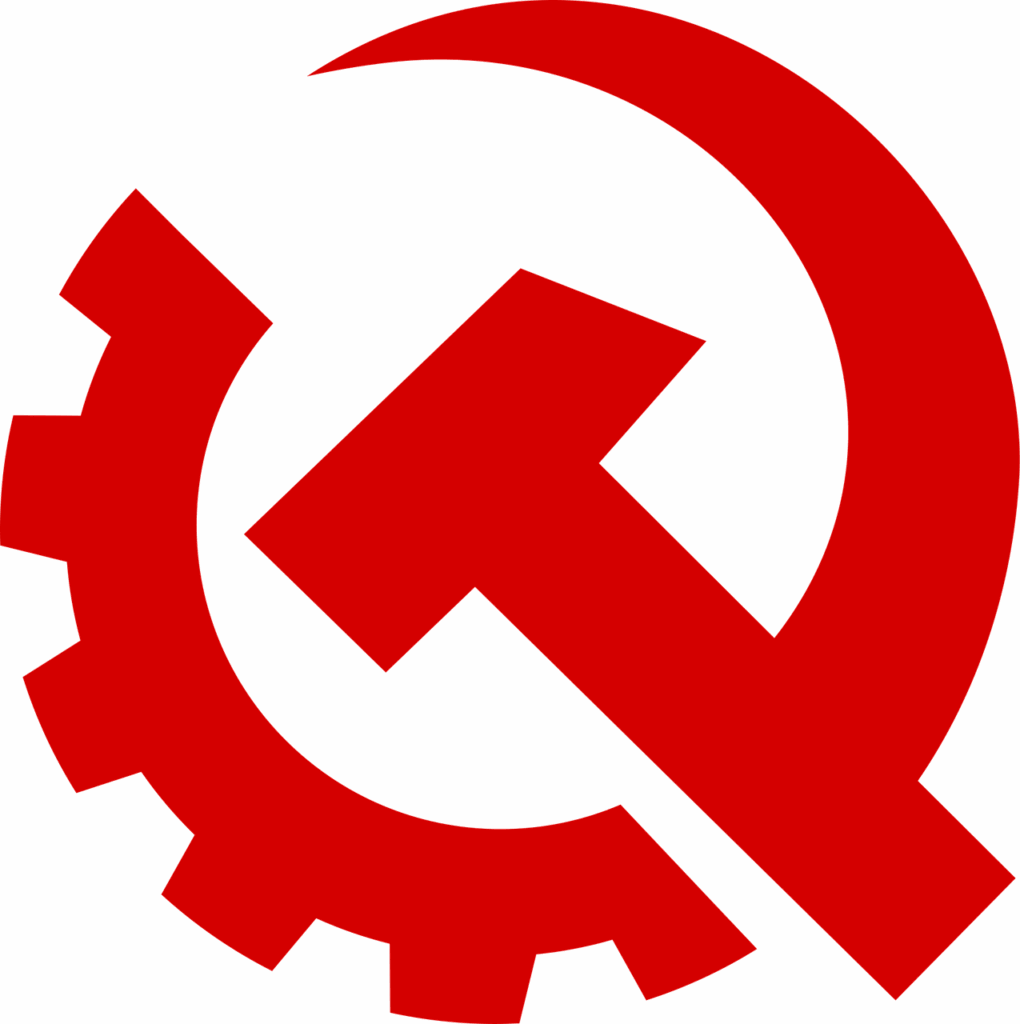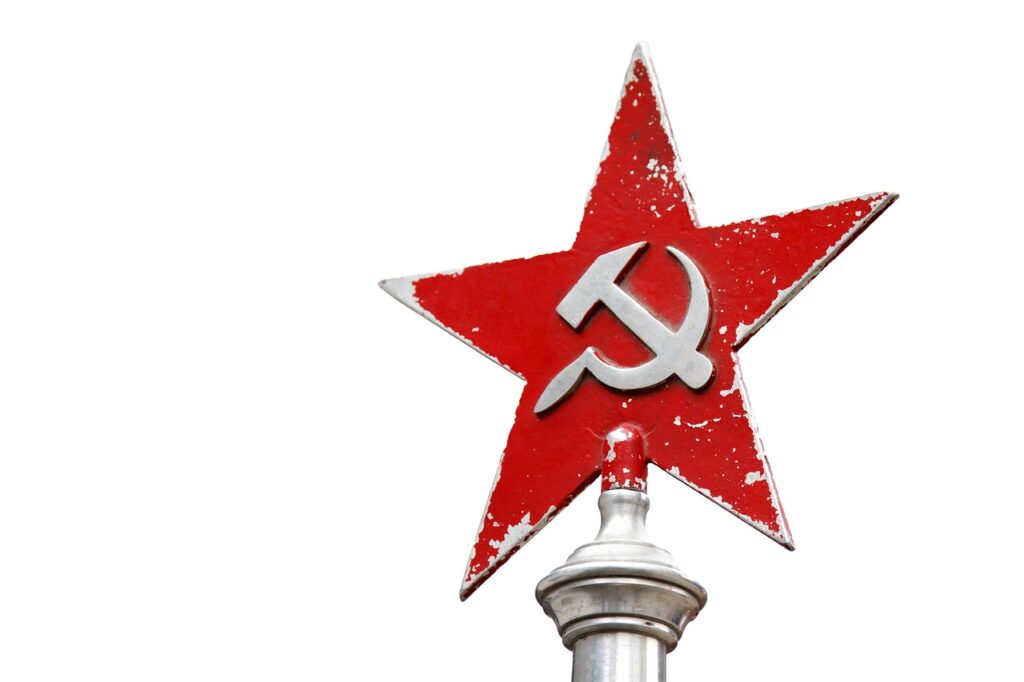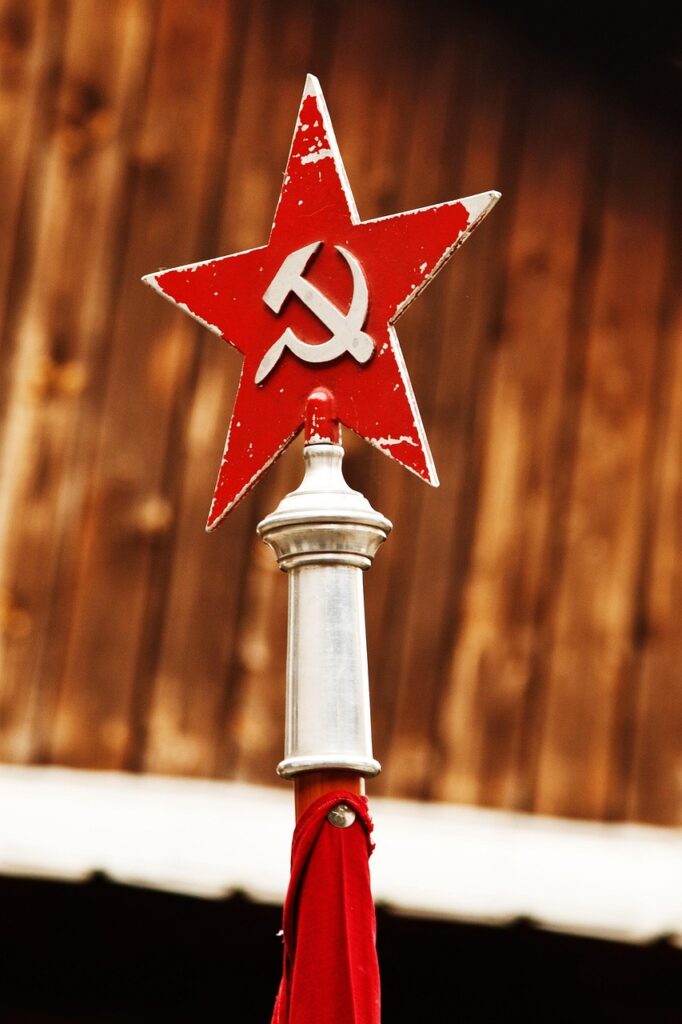
Josip Broz, known universally as Tito, stands as one of the 20th century’s most significant and complex political figures. His journey from humble origins in a small Croatian village to the undisputed leader of Yugoslavia for nearly four decades encapsulates a tumultuous era of war, revolution, and ideological struggle. His impact on his nation and the international stage was profound, shaping a unique socialist path that defied Cold War bipolarity. This in-depth article will meticulously explore the key facets of Tito’s remarkable life and career, drawing solely from historical records to present a comprehensive portrait of the man who led Yugoslavia.
Born into the Austro-Hungarian Empire, Tito’s early experiences laid the groundwork for a life dedicated to revolutionary change and nation-building. From his initial encounters with labor movements to his combat experience in World War I and his pivotal time as a prisoner during the Russian Revolution, these formative years were instrumental in forging his communist convictions and leadership capabilities. We trace his relentless activism in the interwar period, marked by clandestine operations, imprisonments, and a steady rise through the ranks of the Communist Party of Yugoslavia.
His strategic acumen, resilience, and capacity for adaptation allowed him to navigate perilous political landscapes, both within his homeland and in the intricate machinery of the Comintern. The evolution of his identity, including the adoption of the name ‘Tito,’ reflects a man constantly reinventing himself in pursuit of a singular vision for Yugoslavia. This first section will illuminate these crucial early chapters, setting the stage for his emergence as a wartime leader and an international statesman.
1. **Humble Beginnings and Early Labor Activism**
Josip Broz was born on May 7, 1892, in Kumrovec, a village then part of the Kingdom of Croatia-Slavonia within the Austro-Hungarian Empire. His father, Franjo Broz, was a Croat, and his mother, Marija née Javeršek, was a Slovene, reflecting the mixed ethnic heritage that would later define the nation he led. Broz was the seventh or eighth child in his family, and like many children of his era, several of his siblings died in early infancy, a common tragedy of the time. He was christened and raised as a Roman Catholic, a significant cultural detail in his predominantly Catholic Croatian birthplace.
Josip’s early education was limited; he entered primary school in Kumrovec at age eight in July 1900 and completed four years, graduating in 1905, but notably failing second grade. This limited schooling would leave him with poor spelling skills throughout his life. Before embarking on his career, he initially worked for a maternal uncle and then on his parents’ family farm, a common path for rural youth. In 1907, at the age of 15, his father’s plan for him to emigrate to the United States fell through due to a lack of funds for the voyage.
Instead, Broz left Kumrovec and traveled south to Sisak, where his cousin helped him secure a job in a restaurant. Dissatisfied with this work, he soon apprenticed with a Czech locksmith, Nikola Karas, for a three-year term that included training, food, and lodging. His initial forays into the industrial world exposed him to the burgeoning labor movement. During his apprenticeship, he was encouraged to observe May Day in 1909 and actively read and sold a socialist newspaper called *Slobodna Reč*, meaning ‘Free Word.’ After completing his apprenticeship in September 1910, Broz used his contacts to find employment in Zagreb. At 18, he joined the Metal Workers’ Union and participated in his first labor protest, subsequently becoming a member of the Social Democratic Party of Croatia and Slavonia. These early experiences ingrained in him a deep understanding of workers’ struggles and laid the foundation for his lifelong commitment to communist ideology.
Read more about: Behind the Lens: 6 Visionary Directors Who Conquered Career Obstacles to Craft Cinematic Masterpieces

2. **A Soldier’s Odyssey: World War I and Capture**
In May 1913, Josip Broz was conscripted into the Austro-Hungarian Army for his compulsory two years of service, a common fate for young men across the empire. He successfully requested to serve with the 25th Croatian Home Guard Regiment, which was garrisoned in Zagreb, his home region. His military capabilities quickly became apparent. After learning to ski during the winter of 1913 and 1914, he was sent to a school for non-commissioned officers (NCO) in Budapest. Upon completing this training, he was promoted to sergeant major, reportedly the youngest of that rank in his regiment and, according to at least one source, the youngest sergeant major in the entire Austro-Hungarian Army at age 22. His prowess extended beyond leadership, as he won the regimental fencing competition and placed second in the army fencing championships in Budapest in May 1914.
The outbreak of World War I in 1914 saw his regiment marched toward the Serbian border. However, Broz was arrested for sedition and imprisoned in the Petrovaradin fortress. His accounts of this arrest varied, with conflicting claims of threatening to desert, a clerical error, or expressing hopes for the defeat of the Austro-Hungarian Empire. Following his acquittal and release, his regiment briefly served on the Serbian Front before being redeployed to the Eastern Front in Galicia in early 1915 to engage Russian forces. In later years, Broz omitted his participation in the failed Austrian invasion of Serbia from his narrative, likely to avoid offending Serbian public opinion given the historical context. His military record, however, depicted him as a brave soldier, a detail he often downplayed to support his later self-portrayal as an unwilling conscript opposing the Habsburg monarchy.
On March 25, 1915, during a Russian attack near Bukovina, Broz was seriously wounded in the back by a Circassian cavalryman’s lance and subsequently captured. His vivid account describes the sudden charge of Circassian cavalry, their lances, and the subsequent “butcher[ing] the wounded” before Russian infantry intervened. Prior to his capture, his valor had been recognized; his scout platoon had captured 80 Russian soldiers behind enemy lines, earning him a recommendation for an award for gallantry and initiative in reconnaissance. This period marked the dramatic end of his direct service in the Austro-Hungarian Army and the beginning of a new, transformative chapter as a prisoner of war.

3. **From POW to Revolutionary: The Russian Years**
Following his capture, Josip Broz, now a prisoner of war, was transported east to a hospital established in an old monastery in Sviyazhsk, near Kazan on the Volga river. He spent 13 months recuperating from his wounds, enduring bouts of pneumonia and typhus. During this extended period, he began to learn Russian, aided by two schoolgirls who brought him Russian classics by authors such as Tolstoy and Turgenev, immersing him in the language and culture of his captors. This period of recovery and intellectual engagement was critical, offering him an unexpected opportunity for growth amidst the hardships of wartime.
In mid-1916, after recuperating, Broz was transferred to the Ardatov POW camp in the Samara Governorate. There, he utilized his locksmith skills to maintain a nearby village grain mill. Later that year, he was moved to the Kungur POW camp near Perm, where prisoners were used as labor to maintain the newly completed Trans-Siberian Railway. He was appointed to oversee all the POWs in the camp, a position that brought him into direct conflict with camp staff whom he accused of stealing Red Cross parcels intended for the prisoners. His complaints led to him being beaten and imprisoned, highlighting his early assertiveness and willingness to challenge authority.
The tumultuous events of the Russian Revolution profoundly impacted Broz. During the February Revolution, a crowd broke into the prison and released him, returning him to the POW camp. A Bolshevik he had met on the railway encouraged him to go to Petrograd, leading Broz to walk out of the unguarded POW camp in June 1917 and hide aboard a goods train bound for the city. He participated in the July Days demonstrations, coming under fire from government troops. Following the crackdown, he was arrested along with other suspected Bolsheviks and imprisoned in the Peter and Paul Fortress. After admitting he was an escaped POW, he escaped during his return transfer to Kungur, eventually reaching Omsk in Siberia on November 8 after a 3,200-kilometer journey, his fluency in Russian helping him evade police. In Omsk, he joined an International Red Guard, guarding the Trans-Siberian Railway during the winter of 1917 and 1918. He went into hiding again when anti-Bolshevik forces took control of Omsk, during which time he met and was hidden by Pelagija “Polka” Belousova, a 14-year-old local girl he would later marry in January 1920. He joined the Communist Party in Omsk in 1920, marking his formal commitment to the revolutionary cause before returning to his homeland in the autumn of 1920 with his pregnant wife.

4. **Returning Home: The Outlawed Communist Agitator**
Upon his return to his homeland in the autumn of 1920, Josip Broz and his pregnant wife arrived in Vienna before making their way to Kumrovec. There, he discovered that his mother had passed away, and his father had moved to Jastrebarsko, near Zagreb. His initial attempts to secure employment as a metalworker in Kumrovec were unsuccessful, prompting him and his wife to briefly relocate to Zagreb, where he found work as a waiter and participated in a waiters’ strike. It was during this period in Zagreb that he formally joined the Communist Party of Yugoslavia (CPY), solidifying his political affiliation.
The CPY, despite its growing influence evident in the 1920 elections where it won 59 seats to become the third-strongest party, soon faced severe repression. The difficult economic and social conditions in the newly established Kingdom of Serbs, Croats and Slovenes led the regime to view the CPY as a significant threat. In December 1920, the government issued the Proclamation (Obznana), outlawing communist activities, including propaganda and assembly. This was followed by the assassination of Minister of the Interior Milorad Drašković by a young communist in August 1921, leading to the CPY being declared illegal under the Yugoslav State Security Act of 1921. This initiated a harsh prosecution of party members and sympathizers, often leading to their imprisonment as political prisoners.
Due to his overt communist links, Broz was fired from his employment. He and his wife moved to the village of Veliko Trojstvo, where he worked as a mill mechanic. Following the arrest of the CPY leadership in January 1922, Stevo Sabić took control of its operations and recruited Broz to work illegally for the party, distributing leaflets and agitating among factory workers. In the ideological struggle within the party between moderates and advocates of violent revolution, Broz firmly sided with the latter. His commitment deepened amidst personal tragedy; since their arrival in Yugoslavia, Pelagija had lost three babies soon after birth and a daughter, Zlatica, at the age of two, a loss Broz felt profoundly. In 1924, Pelagija gave birth to a son, Žarko, who survived. In mid-1925, after his employer died and the new mill owner issued an ultimatum to abandon communist activities or lose his job, the 33-year-old Broz chose to become a professional revolutionary, fully dedicating his life to the cause.

5. **The Professional Revolutionary: Union Organizing and Early Confrontations**
Having committed himself entirely to the communist cause, Josip Broz focused his revolutionary efforts on factory workers in the more industrialized regions of Croatia and Slovenia. The Communist Party of Yugoslavia encouraged strikes and similar actions to galvanize the working class. In 1925, Broz, now unemployed but determined, moved to Kraljevica on the Adriatic coast. He secured work at a shipyard, using his position to further the aims of the CPY by building up the trade union organization. His efforts quickly bore fruit, leading to his election as a union representative, demonstrating his early effectiveness as an organizer.
His activism soon led to confrontation. A year after his arrival in Kraljevica, Broz led a shipyard strike, which resulted in his prompt dismissal. Despite this setback, his reputation as a committed and effective agitator grew within the party. In October 1926, he found employment at a railway works in Smederevska Palanka, near Belgrade. His period there was also short-lived; in March 1927, he authored an article criticizing the exploitation of workers in the factory and was sacked after speaking up for a fellow worker, underscoring his unwavering advocacy for labor rights. These repeated dismissals cemented his role as an ‘agitator’ in the eyes of employers and authorities alike, but also as a dedicated leader to the workers.
Recognizing his potential, the CPY marked Broz for promotion. He was appointed secretary of the Zagreb branch of the Metal Workers’ Union, and shortly thereafter, assumed leadership of the union’s entire Croatian branch. This elevated role brought increased scrutiny from the authorities. In July 1927, he was arrested along with six other workers and imprisoned at Ogulin. Held without trial for some time, he resorted to a hunger strike to demand a court date. His trial, held in secret, found him guilty of CPY membership, resulting in a four-month prison sentence. Released pending an appeal, Broz, following CPY orders, defied the court and went into hiding in Zagreb. Adopting false papers and dark spectacles, he posed as a middle-class technician in the engineering industry, working undercover to contact and coordinate other CPY members in their efforts to infiltrate trade unions, showcasing his growing expertise in clandestine operations.

6. **Ascension Amidst Factionalism: The CPY’s Shifting Tides**
By February 1928, Josip Broz’s influence within the Communist Party of Yugoslavia had grown significantly, leading to his selection as one of 32 delegates to a critical conference of the Croatian branch of the CPY. This gathering proved to be a pivotal moment for his career. During the conference, Broz was outspoken in his condemnation of the various factions that plagued the party, particularly those advocating a Greater Serbia agenda within Yugoslavia, exemplified by the long-serving CPY leader Sima Marković. His strong stance against internal divisions and his call for unity resonated within the party, distinguishing him as a decisive and principled figure.
Broz further asserted his leadership by proposing that the executive committee of the Communist International (Comintern) intervene to purge the Croatian branch of factionalism. His proposal gained crucial support from a delegate sent directly from Moscow, lending it significant weight. Following these discussions, a decision was made to dismiss the entire central committee of the Croatian branch, paving the way for new leadership. In the subsequent elections, Broz was elected as the secretary of the newly formed central committee, marking a significant step in his ascent within the CPY. Marković, his rival, was later expelled from the CPY at the Fourth Congress of the Comintern, and the party officially adopted a policy advocating for the breakup of Yugoslavia, a stance that reflected the shifting political winds and Broz’s growing influence.
His commitment to disrupting the established order continued. Broz organized efforts to disrupt a meeting of the Social-Democratic Party on May Day that year. In the ensuing melee outside the venue, he was arrested by police. However, he managed to evade identification, being charged under his false name for a simple breach of the peace. After serving a 14-day imprisonment, he was released and promptly resumed his underground activities. The police, however, eventually tracked him down with the assistance of a police informer. He was subjected to ill-treatment and held for three months before being brought to trial in November 1928. He faced charges for his illegal communist activities, including allegations that police had planted bombs at his address. Despite the circumstances, he was convicted and sentenced to five years’ imprisonment, a testament to the regime’s determination to suppress communist movements and Broz’s unyielding dedication to his revolutionary path.

7. **Forging a New Identity: The Birth of “Tito” and Early European Missions**
Following his sentencing, Josip Broz began his five-year imprisonment, a period that would profoundly shape his ideological development and personal resilience. His wife and son, Pelagija and Žarko, returned to Kumrovec, where sympathetic locals provided care. However, they mysteriously departed for the Soviet Union, leading to Pelagija’s eventual divorce from Broz and Žarko’s upbringing in institutions, highlighting the personal sacrifices inherent in his revolutionary life. In Lepoglava prison, Broz was assigned to maintain the electrical system and chose Moša Pijade, a middle-class Belgrade Jew serving a 20-year sentence for communist activities, as his assistant. Their work allowed them unusual freedom of movement within the prison, which they exploited to contact and organize other communist prisoners. During their time together, Pijade became Broz’s ideological mentor, further solidifying his Marxist-Leninist convictions.
After two and a half years at Lepoglava, Broz was accused of attempting to escape and subsequently transferred to Maribor prison, where he endured several months in solitary confinement. Upon completing his full term, he was immediately re-arrested outside the prison gates and taken to Ogulin to serve a four-month sentence he had avoided in 1927. He was finally released on March 16, 1934, under strict orders to reside in Kumrovec and report daily to the police. The political landscape of Europe had drastically altered during his incarceration, marked by the rise of Adolf Hitler in Germany and the emergence of powerful right-wing parties. Despite a warm welcome in Kumrovec, Broz did not remain long. In early May, he received instructions from the CPY to resume his revolutionary activities, prompting him to leave his hometown for Zagreb, where he rejoined the Central Committee of the Communist Party of Croatia, which was then in disarray due to its executive committee’s escape to Vienna.
Over the next six months, Broz embarked on a series of covert journeys between Zagreb, Ljubljana, and Vienna, utilizing false passports to evade authorities. In July 1934, he navigated a blackmail attempt by a smuggler and, after crossing the border, was briefly detained by the local Heimwehr, an Austrian paramilitary Home Guard. Resourcefully, he employed the Austrian accent he had developed during his World War I service to convince them he was a lost Austrian mountaineer, securing his release and allowing him to proceed to Vienna. There, he contacted the General Secretary of the CPY, Milan Gorkić, who dispatched him to Ljubljana to organize a secret party conference. This pivotal conference, held at the summer palace of a Roman Catholic bishop whose brother sympathized with communism, was where Broz first met Edvard Kardelj, a young Slovene communist recently released from prison. Broz and Kardelj quickly forged a strong bond, with Tito later regarding Kardelj as his most reliable deputy. Wanted by the police for failing to report in Kumrovec, Broz adopted various pseudonyms, including “Rudi” and “Tito.” He first used “Tito” as a pen name for party journal articles in 1934, and the name endured. He never offered a specific reason for choosing it, only stating it was a common nickname for men from his home district. Within the Comintern network, he was also known by the nickname “Walter.” This period of intense clandestine activity, the forging of key alliances, and the adoption of his enduring revolutionary name marked the true emergence of Josip Broz Tito as a figure destined for greater leadership.”
8. **Assuming Leadership: General Secretary and Pre-War Mobilization**
By January 1939, Josip Broz Tito had solidified his position within the Communist Party of Yugoslavia (CPY), with the Comintern formally ratifying his resolutions. This period marked his formal election as general secretary, a pivotal step following his de facto control over the party since 1937. His leadership emerged during a volatile geopolitical era, characterized by the rise of Nazism in Germany and growing instability across Europe.
Upon his appointment, Tito prioritized strengthening the CPY’s internal structure. He advocated for the party leadership to operate within Yugoslavia, sharing the risks of underground resistance. This strategy led to the development of a new, younger leadership team fiercely loyal to him. Key figures in this new cadre included Edvard Kardelj from Slovenia, Aleksandar Ranković from Serbia, and Milovan Đilas from Montenegro, who would later become prominent in his post-war government.
Tito’s efforts extended to public mobilization against the rising fascist threat. In December 1937, he organized a significant demonstration in Belgrade to greet the French foreign minister, using the occasion to express solidarity with France against Nazi Germany. The protest, which drew approximately 30,000 participants, quickly evolved into a broader demonstration against the Stojadinović government’s neutrality policy, eventually being dispersed by police. He continued these efforts upon returning to Yugoslavia in March 1938, making an appeal against the Anschluss between Nazi Germany and Austria, a stance supported by the CPY, Social Democrats, and trade unions.
9. **World War II and the Yugoslav Partisans**
With the onset of World War II and the Nazi invasion of Yugoslavia in 1941, Josip Broz Tito assumed leadership of the Yugoslav guerrilla movement known as the Partisans. This resistance force became instrumental in challenging German occupation, gaining recognition as one of the most effective movements in German-occupied Europe. His strategic command and ability to unify disparate groups were crucial during this period of intense conflict.
The Partisans waged a brutal four-year campaign against Axis forces and their local collaborators. Tito’s leadership fostered a robust and resilient resistance. His forces engaged in significant battles, tying down considerable Axis resources and contributing substantially to the Allied war effort. The Partisans’ effectiveness stemmed from their widespread popular support and their ability to adapt to severe wartime conditions.
By mid-1943, the Partisans had garnered crucial backing from the Allies. This support proved decisive in turning the tide of the conflict within Yugoslavia. With the Allied assistance, Tito’s Partisans were able to consolidate their power and, by the end of the war in 1945, successfully liberate Yugoslavia from Axis occupation. This victory marked a profound shift in the political landscape, paving the way for the establishment of a new state under Tito’s leadership.
10. **Establishing the Post-War Communist State**
Following Yugoslavia’s liberation in 1945, Josip Broz Tito rapidly moved to consolidate political power, establishing a communist state. He assumed dual leadership roles, serving as the prime minister from 1945 to 1963 and concurrently as president from 1953 until his death in 1980. His authority was further underscored by his position as marshal of Yugoslavia, the highest rank within the Yugoslav People’s Army (JNA).
Under his leadership, the nation underwent a fundamental transformation into a communist state. This new political entity was eventually renamed the Socialist Federal Republic of Yugoslavia. Tito’s vision for the state aimed to unite the diverse nations and nationalities within its borders under a single socialist banner, a complex undertaking given the region’s historical ethnic tensions.
From 1974, Tito held the title of president for life, cementing his absolute authority over the country for nearly four decades. His foundational role in establishing and shaping the post-war Yugoslav state positioned him as a towering figure, whose political ideology and policies would come to be known as Titoism.
Read more about: Unveiling the Shadow Warriors: Inside the Secret World of Navy SEALs and Their Unmatched Legacy
11. **Defiance of Soviet Hegemony: The Tito-Stalin Split**
Despite being a founding member of the Cominform, an organization established to coordinate communist parties in Eastern Europe, Josip Broz Tito made a historic break with Soviet hegemony. This defiance, known as the Tito-Stalin split, occurred in 1948, making Yugoslavia the first Cominform member and the only nation under Joseph Stalin’s lifetime to challenge Soviet dominance in the Eastern Bloc. This rupture marked a turning point in post-war communist politics.
The split led directly to Yugoslavia’s expulsion from the Cominform. Tito’s refusal to align completely with Moscow’s directives was driven by a desire for an independent path to socialism, distinct from the Soviet model. This bold move stunned the international community and reshaped Yugoslavia’s foreign policy, forcing it to forge its own alliances and economic strategies outside the direct influence of either superpower bloc.
This act of defiance against Stalin showcased Tito’s strong will and commitment to national sovereignty. It established Yugoslavia as a unique socialist experiment, navigating the complex dynamics of the Cold War without fully committing to either the Soviet or Western spheres of influence. The Tito-Stalin split remains a critical event in the history of the Cold War and the international communist movement.
12. **The Birth of Socialist Self-Management**
In the years following the Tito-Stalin split, Josip Broz Tito, alongside key political leaders and Marxist theorists such as Edvard Kardelj and Milovan Đilas, pioneered an idiosyncratic model of economic and political organization: socialist self-management. This system fundamentally altered traditional communist economic structures by empowering workers in the management of their enterprises. Firms were managed directly by workers’ councils, giving all workers a right to workplace democracy and an equal share of profits.
Tito’s vision extended to the broader federal structure of Yugoslavia. He navigated between advocating for a centralized or a more decentralized federation, ultimately favoring greater decentralization. This approach was designed to manage and control inherent ethnic tensions within the multi-ethnic state by delegating as much power as possible to each constituent republic.
The constitution of the Socialist Federal Republic of Yugoslavia was progressively developed to reflect this commitment to decentralization. This policy was aligned with the Marxist theory of the withering away of the state, aiming to create a truly federal republic. Tito envisioned the SFR of Yugoslavia as a “federal republic of equal nations and nationalities, freely united on the principle of brotherhood and unity in achieving specific and common interest,” emphasizing unity and equality among its diverse populations.
Read more about: Unveiling the Powerhouse: Exploring the Foundational Strengths Behind America’s Advanced Naval Capabilities

13. **Co-Founding the Non-Aligned Movement and Global Influence**
Josip Broz Tito’s international profile significantly expanded beyond the Eastern Bloc through his instrumental role in co-founding the Non-Aligned Movement. This influential international organization provided an alternative path for nations during the Cold War, allowing them to avoid formal alignment with either the United States-led Western Bloc or the Soviet-led Eastern Bloc. His collaborative efforts with leaders such as Jawaharlal Nehru of India, Gamal Abdel Nasser of Egypt, Kwame Nkrumah of Ghana, and Sukarno of Indonesia were central to the movement’s inception.
The Non-Aligned Movement quickly gained prominence on the global stage, advocating for peace, decolonization, and independent foreign policies for developing nations. Tito’s leadership within this movement established Yugoslavia as a respected voice in international affairs. His diplomatic skill and vision allowed Yugoslavia to maintain an independent stance, fostering relationships with countries across the ideological spectrum.
His highly favorable reputation abroad was evident in both Cold War blocs, a rare achievement for a communist leader. This widespread respect was symbolized by the impressive number of foreign decorations he received throughout his career, totaling 98. These accolades included prestigious honors such as the French Legion of Honour and the British Order of the Bath, underscoring his significant global impact and diplomatic achievements.

14. **Cult of Personality, Authoritarianism, and Post-Tito Yugoslavia**
During his nearly four decades of leadership, a powerful cult of personality developed around Josip Broz Tito. This public image was carefully cultivated and maintained even after his death by the League of Communists of Yugoslavia. He was widely viewed as a unifying symbol, instrumental in preserving the peaceful coexistence of the diverse nations within the Yugoslav federation through his internal policies, promoting the concept of “brotherhood and unity.”
Despite his widespread popularity, particularly abroad and among many within Yugoslavia, historians offer critical perspectives on his rule. Some characterize his presidency as authoritarian, viewing him as a dictator. Others, however, define him as a benevolent dictator, acknowledging his firm control while also highlighting the stability and progress achieved under his leadership. These differing interpretations reflect the complex nature of his legacy and his governance style.
Following Tito’s death on May 4, 1980, Yugoslavia’s leadership transitioned into an annually rotating presidency. This system was designed to ensure representation for all of Yugoslavia’s nationalities and to prevent the re-emergence of another authoritarian leader. However, twelve years after his passing, as communism collapsed across Eastern Europe and ethnic tensions escalated, Yugoslavia ultimately dissolved, descending into a series of interethnic wars that dramatically concluded the unique socialist experiment he had led for so long.
Josip Broz Tito’s life was a testament to his indelible mark on the 20th century. From the battlefields of World War I and the ferment of the Russian Revolution to the highest echelons of power in a nation he forged and led with an iron will, his journey was nothing short of extraordinary. His vision of an independent socialist Yugoslavia, defiant against superpower blocs and dedicated to self-management, shaped not only his country but also left a profound ripple across the global stage. While the Yugoslavia he built ultimately faced dissolution, the unique path he charted, his courage in challenging established powers, and his efforts to unite a diverse populace continue to resonate in historical discourse. His legacy remains a vibrant tapestry woven with threads of revolutionary fervor, resolute leadership, and a complex, enduring influence on international politics.









